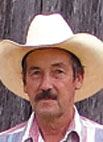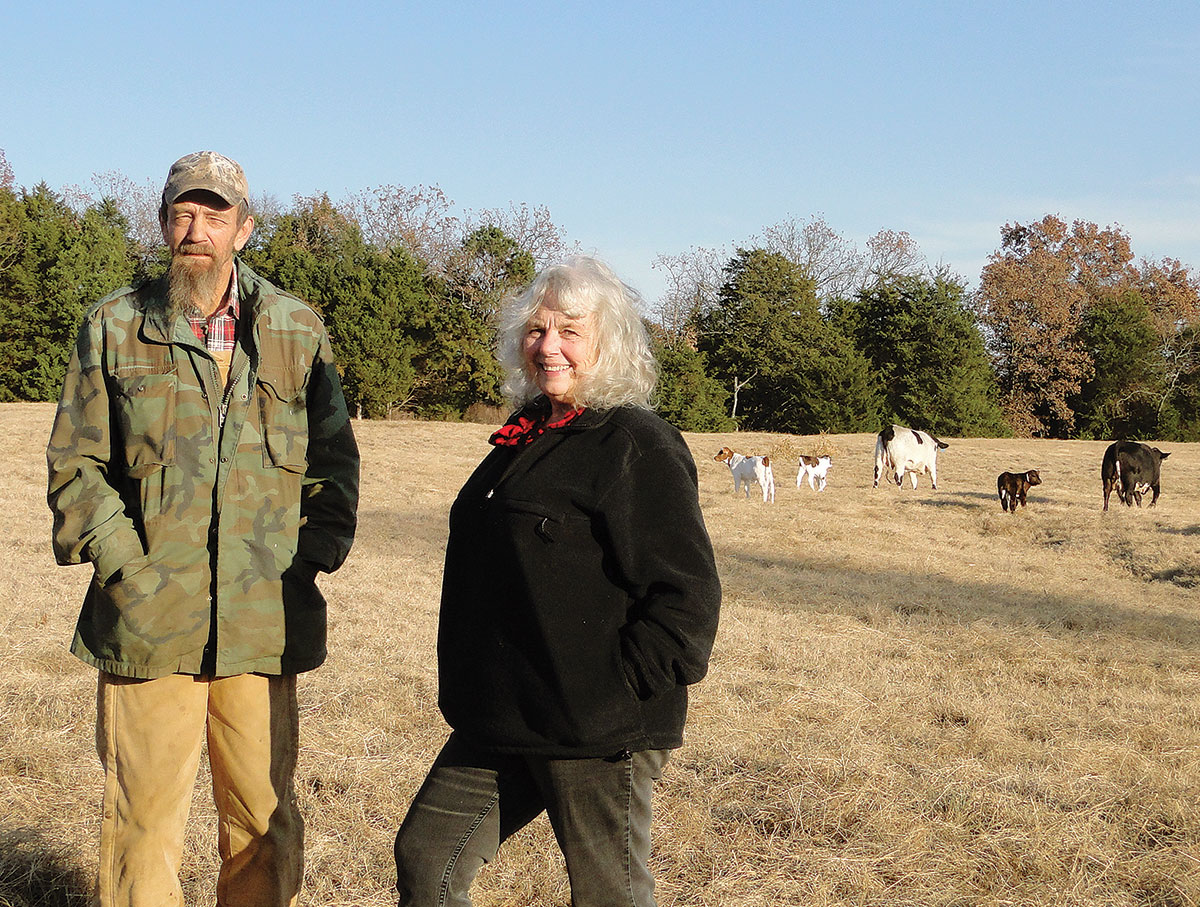
Troy and Kathy Cline have always been a busy couple, so busy they had a marriage license but had difficulty finding time to marry. Then one day it snowed, really snowed, a full 18 inches. They had worked all day and night the day before in Springdale, Ark., at the sale barn and then traveled to Berryville, Ark., to work when it started snowing. Kathy said, “That was when we finally had time to get married. We called the Justice of the Peace who had gone fishing on Groundhog Day. He came back and performed his first wedding on us.” Then Troy grinned and said, “I got her young enough to train her the way I wanted.” Kathy nodded in agreement and said, “My mom had cows that basically took care of themselves so I knew nothing about cattle. I married into this mess.”
The Clines are one of those couples who work as many aspects of the commercial cattle business as they can. They own 390 acres and lease 546 acres in Kingston, Ark., to support a herd of 162 momma cows and 40 replacement heifers bred by 9 mostly Angus bulls. One bull is a Brahman which they breed with Jersey cows for replacement heifers because they believe the resulting heifers become the strongest commercial cow, which can then be bred to Angus bulls in order to produce high-quality market beef.
The drought forced the Clines to downsize from 200 mommas, though the number may change with the better moisture this year but only if they can find additional land since they currently use their land to maximum capacity by raising hay. They harvested 2,500 round bales by August of this year and intend to get another cutting on some of the land using the rest as pasture for their current herd.
In order to keep the land as productive as possible, the Clines fertilize with litter when they can get it because it is cheaper than commercial fertilizer and it is natural which tends to produce more grass, though it also produces more weeds. They spray for weeds as needed and soil test if the land is not producing properly. The drought necessitated reseeding with drilled wheat and rye in addition to sewing fescue and orchardgrass. Troy said, “Clover comes and goes, but we don’t reseed with it because clover is hard to dry and is killed by the weed spray needed when using litter.”
In the past the Clines had as many as 1,000 head of stocker calves a year and utilized their pasture in the fall for the stocker cattle. When the calf and feed market got too high two years ago, they decided to change their operation, raised strictly calves for others to buy and then purchased the Marble Sale Barn in Marble, Ark. Though still in the process of renovating the facility, they have a sale every Saturday. Troy said, “We sell anything that’s legal which includes goats, sheep, miscellaneous poultry, a few cattle and a horse now and then.”
Just to make sure he has enough to keep himself busy, Troy also works off the farm as a field representative for the North Arkansas Livestock Auction in Green Forest, Ark. He picks up cattle or sends someone else when someone is ready to sell. When needed, Troy serves as an auctioneer. Kathy clerks at their sale barn, a position she filled around the country earlier in their marriage. Kathy also has outside activities and has worked on the Madison County Fair Board for 10 years where she serves as secretary and takes care of premium points.
Troy and Kathy’s son, Spencer, is also highly involved. He has 20 meat and dairy goats and just purchased a new billy in hopes of not having to buy any more show goats. He has 12 wool sheep, 5 of which he uses for showing. Spencer also shows cattle and has been going to local fairs since he was 3.
Troy admits that the biggest challenge is to keep everything coordinated and the finances together. Fuel costs and high machinery and equipment costs are part of the challenge even though they are not feeding hay this summer as they did last. Kathy smiled and admitted, “If I won the lottery, I’d move to Montana but I would still be raising cows.”







